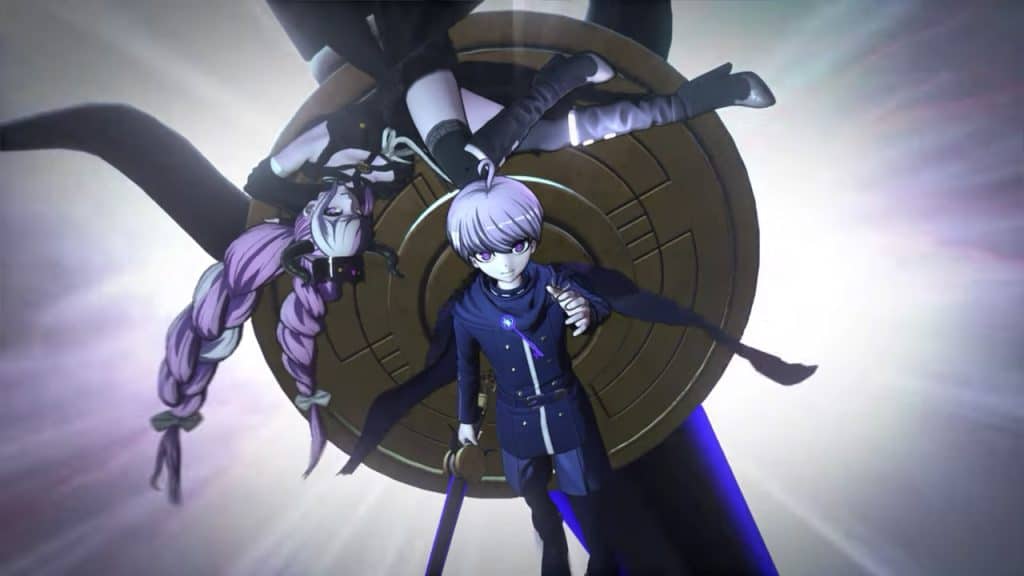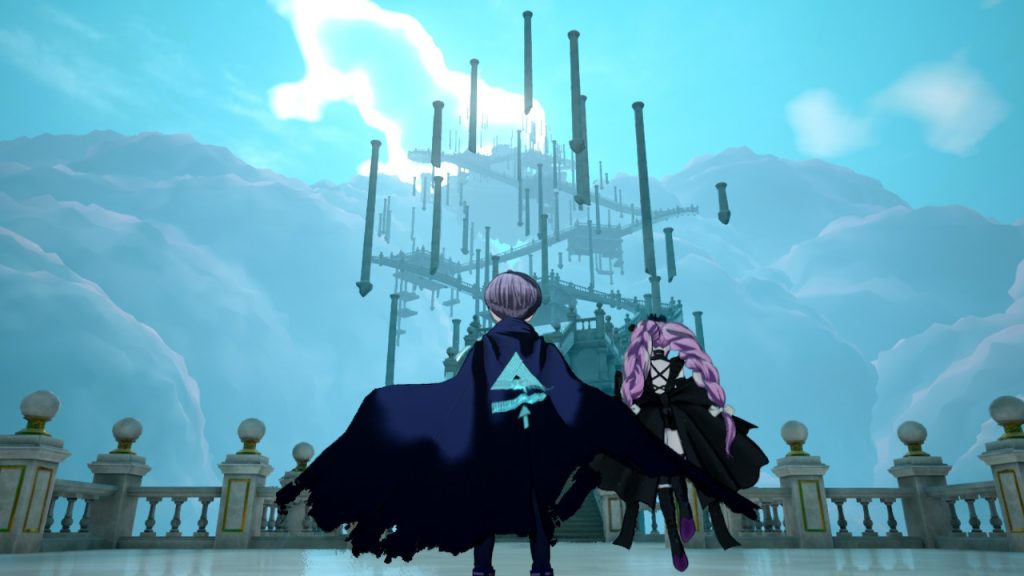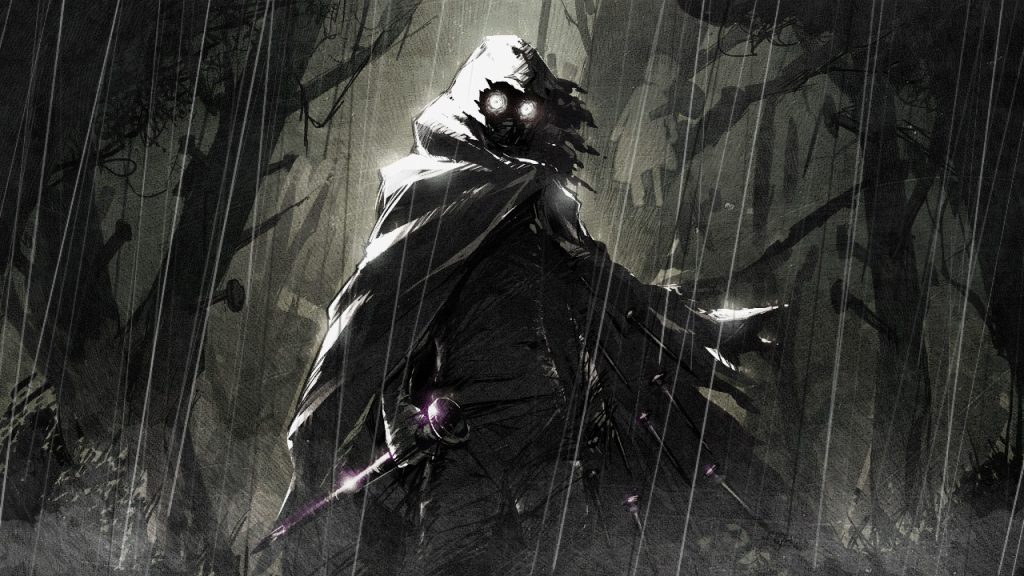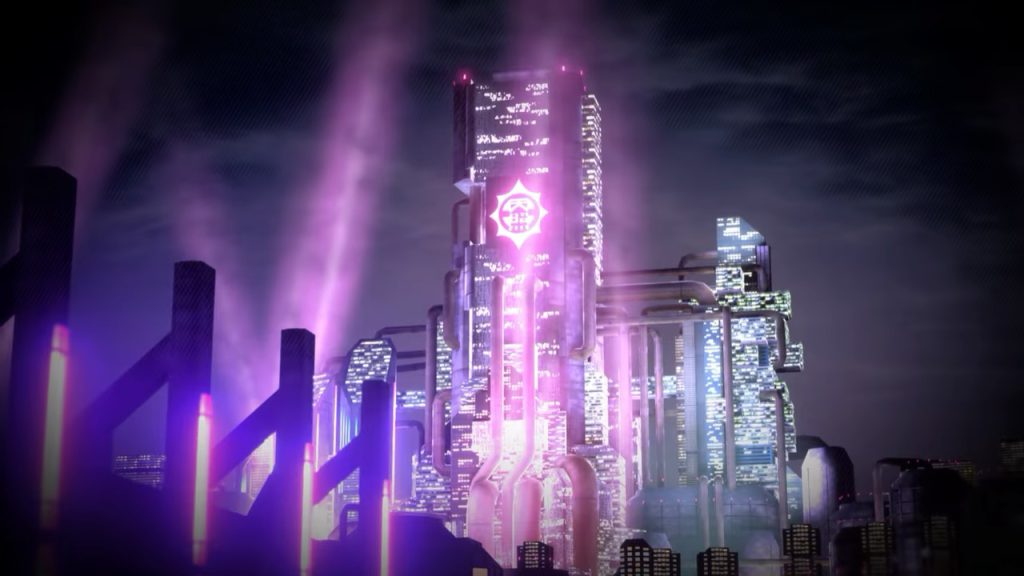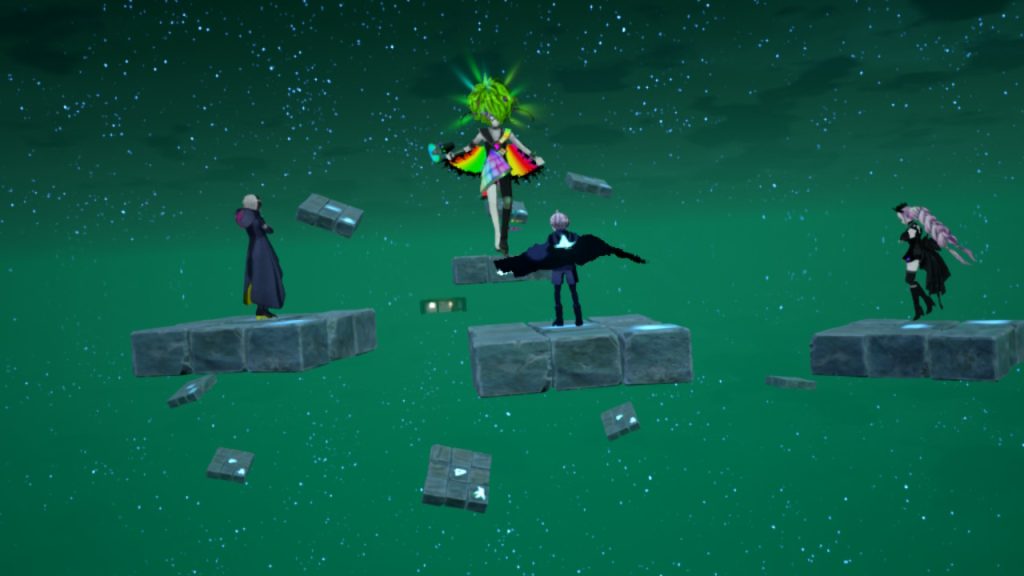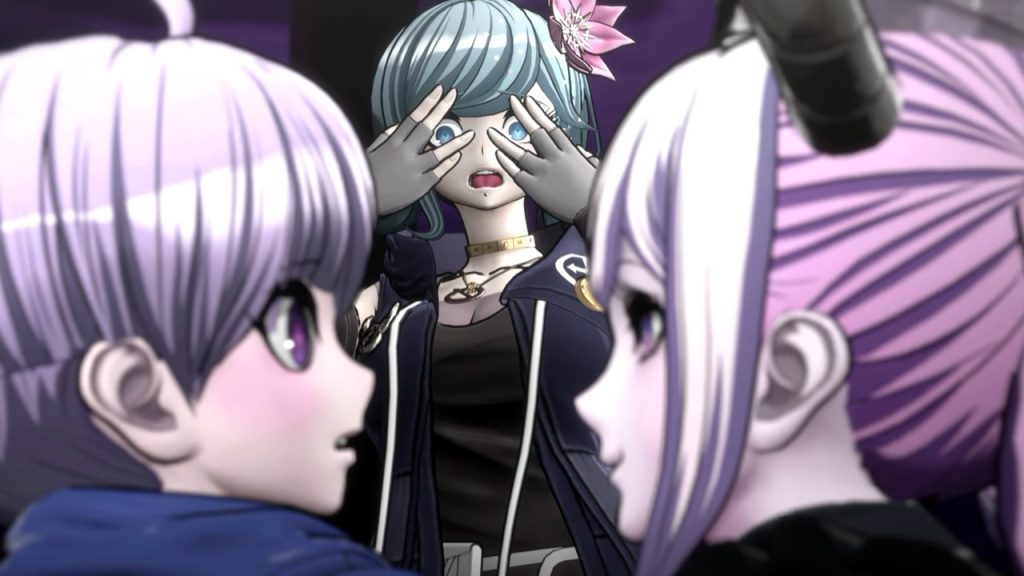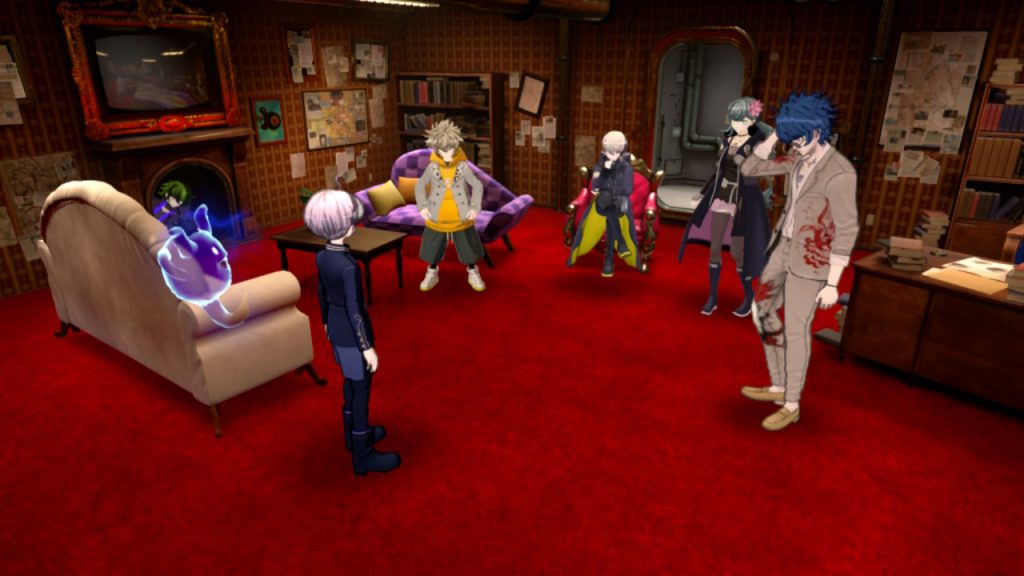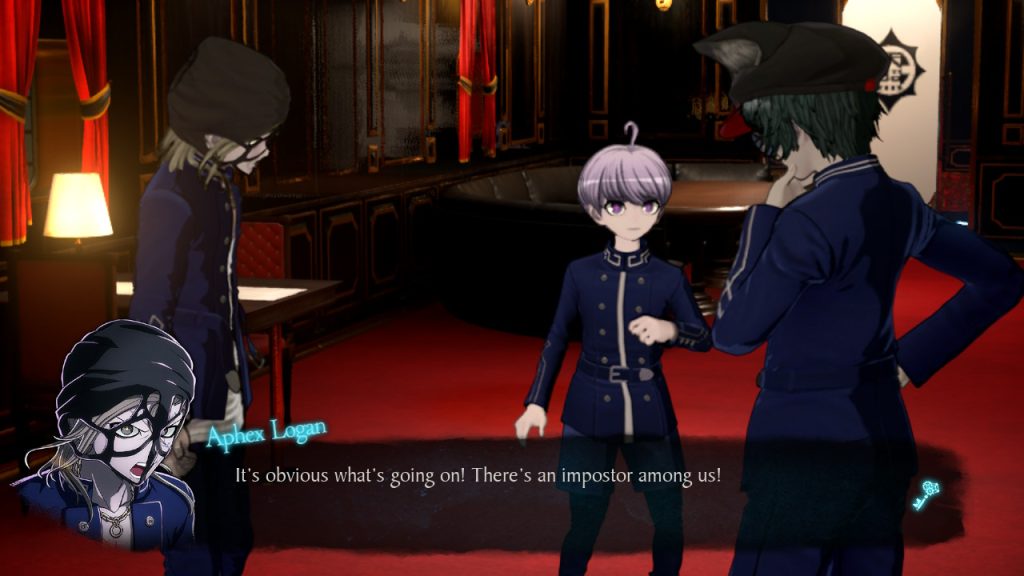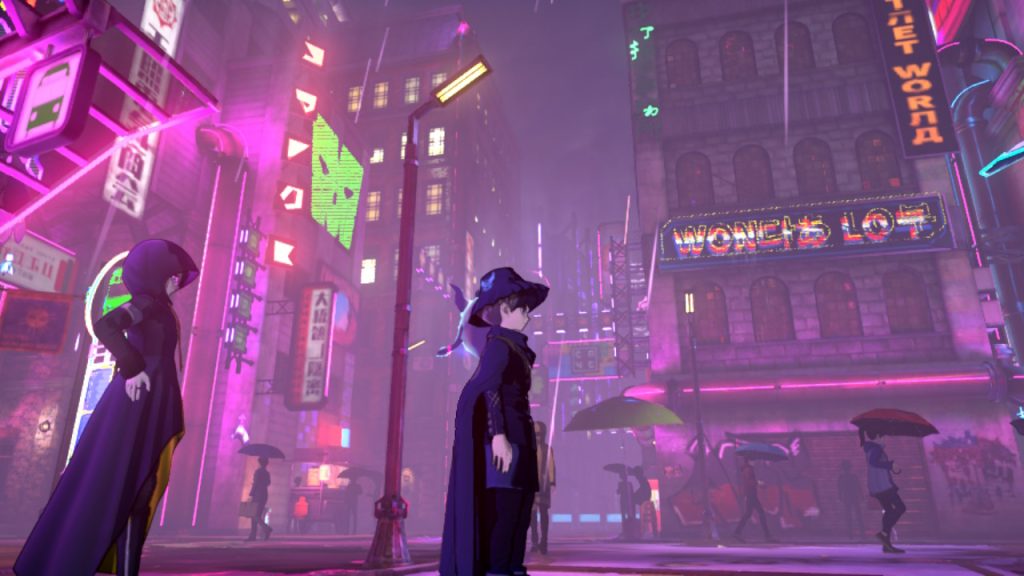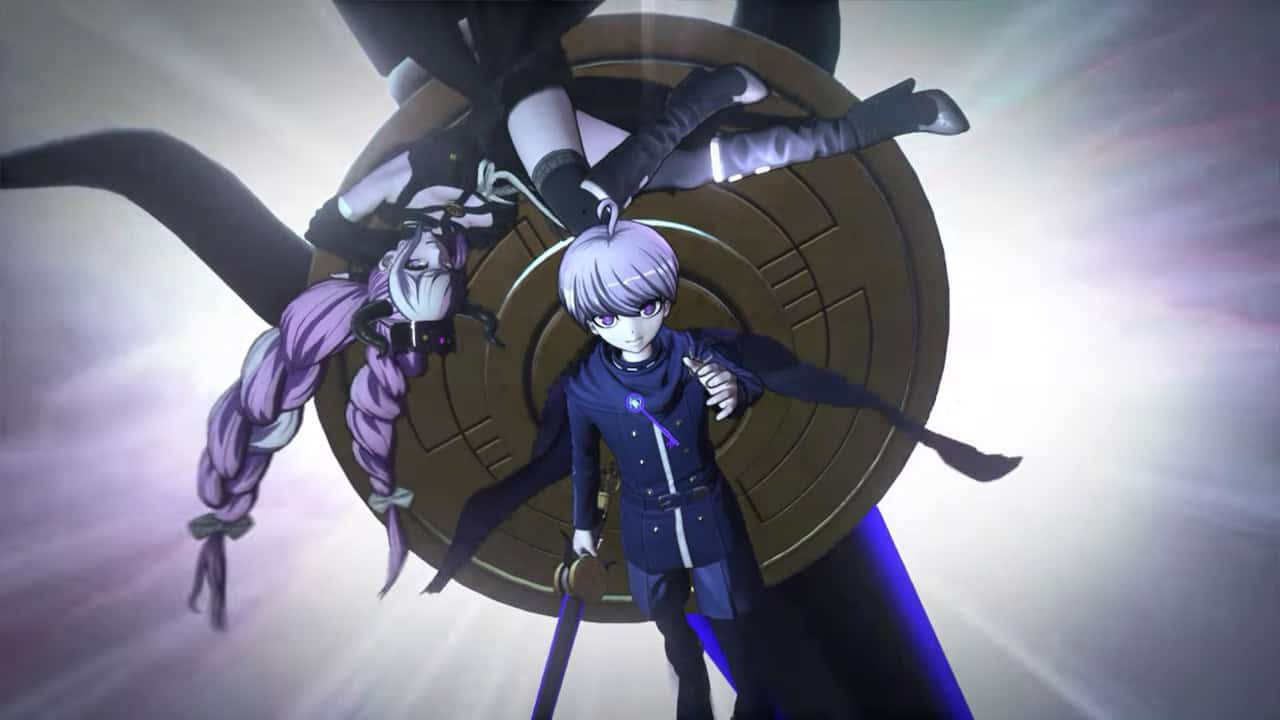As a fan of the Danganronpa franchise, the next obvious step was to migrate over to Kodaka’s next work. Master Detective Archives: Rain Code is a mouthful of a title for a video game and one that’s even more bizarre than previous works from Spike Chunsoft. Considering the nature of the game, this review will contain little to no spoilers.
True to its namesake, Rain Code is a detective game. It shares most of its DNA with Danganronpa and you can feel the influence of Kodaka’s prior works implemented here. However, Rain Code is clearly new grounds for the Spike Chunsoft team and I can notice that they struggled with some aspects of the design and direction of this game.
Master Detective Archives isn’t a game that’s easy to approach. Especially for those who have never played a Spike Chunsoft game. It’s dialogue heavy and its gameplay is all over the place.
Rain Code is a detective game about solving mysteries. And by mysteries, what I really mean is murder. There are no missing cats, infidelity, or fraudulence to solve. You strictly play the role of a homicide detective named Yuma Kokohead. If you think that name is weird, stick around and you’ll realize that other characters have even more weird names.
The game centers around Kanai Ward, an isolated region where it’s always raining. On the surface, it doesn’t seem like too bad of a place to live until you dig deeper. The Peacekeepers, the private security run by the corrupt Amaterasu Corp., are responsible for all the shady dealings that run in the city. Yuma joins up with a team of master detectives to tackle a series of mysteries to get them closer to Amaterasu Corporation’s biggest secret.
I have a problem concerning the Peacekeepers. They don’t really feel intimidating or threatening. Looking at Amaterasu there are clear parallels to Umbrella right down to their gas-masked mooks. The issue is that these mooks and even their elite members are so goofy in both action and appearance that I never once considered them to be an engaging threat. Only cemented by the fact that the likes of Halara and Vivia can take out crowds of Peacekeepers in seconds.
This presents a problem with Rain Code’s storytelling because, without an engaging threat, the story becomes a lot harder to get invested in. Unlike Danganronpa where the antagonist is always unknown and mysterious until the last chapter, the Peacekeepers lack the depth to be entertaining and are just flat-out boring.
Sections of the game are divided into different chapters. Like in Danganronpa, there’s a time when you can explore Kanai Ward and a section where you’ll be solving the cases using clues you’ve dug up during your investigation. Only this time, there are side quests to partake in.
Don’t get too excited; the side quests are one-note fetch quests that don’t affect the story in any way nor take any real detective work. They usually involve just talking to an NPC and then going around to talk to other NPCs marked on your map. This felt like a terrible way to learn more about the citizens of the city as none of them felt all that interesting.
A big problem I had is that solving a case in Rain Code doesn’t feel impactful. Many times it felt like solving a case was almost useless as the story makes it out so that the outcome would’ve been the same for most of the major cases regardless of whether our protagonist Yuma had even resolved the mystery or not.
Another problem is Kanai Ward itself. Its idea is interesting in concept but boy did Spike Chunsoft do a bad job with the execution. In terms of visuals, Kanai Ward is a pretty cool environment. In gameplay, it’s poorly implemented. There’s almost nothing to do in Kanai Ward and most of its layout leads to dead ends that don’t have anything entertaining.
At the time of this review, Master Detective Archives: Rain Code has been released for PC, I may recommend playing the game there. Playing the game on the Nintendo Switch even in 2024 with all the updates had a lot of performance issues where the frame rate would drop as I explored the city.
Well, there are a few things to do in Kanai Ward. Interacting with things that have a prompt over them can lead to Yuma gaining experience in the form of Detective Points which he can invest in gaining certain buffs in investigations. The same for completing side quests. However, these investments ultimately don’t feel impactful as they should mostly because the buffs you can invest them in feel inconsequential.
Once in every chapter, you’ll enter a place called a Mystery Labyrinth where Yuma must use the Solution Keys, which are clues, to solve the case. It’s a blend of every idea Spike Chunsoft did in their previous games. You’ll be familiar with most of the mechanics if you’ve played them before.
Unlike classroom debates in Danganronpa, Mystery Labyrinth feels a bit on the boring side to solve the case. Each Mystery Labyrinth has a pyramid design and functions a bit like the Palaces from Persona 5 but instead of shadows, you’ll encounter Mystery Phantoms which will stop you with questions and contradictions before you can proceed. Once you solve the case, the Mystery Labyrinth is destroyed.
There are also word games where you have to figure out the right word to complete the sentence. Shinigami will be stuck in a barrel with a provocative swimsuit while you beat the timer to get the right word. This wasn’t really anything too hard and I never got a game over despite how many mistakes I made thanks to the game’s generous health bar.
Then you also square up with the Mystery Phantoms which function closer to the classroom debates of Danganronpa. You have to get Yuma to dodge each sentence or else his health takes a hit. Then equip the right Solution Key, which are the clues you discovered in the real world, before slashing the contradiction. No matter how many mistakes I made, I never really got a game over here either thanks to having quite a bit of health.
This brings me to the overall difficulty of Rain Code. Or rather the nonexistent challenge thereof. There’s no real consequence for getting an answer wrong or performing poorly. Even after making plenty of mistakes I still got an S rank at the end of the Mystery Labyrinth. It almost felt like the game was just giving me points for free no matter my performance.
Mystery Labyrinths are where your experience points come into play. You can make several investments in Yuma’s character such as giving him more stamina and making certain challenges easier by blocking out the wrong answers. The problem with this is that I never really felt these skill upgrades were significant. In fact, I kind of forgot to invest in them halfway through the game.
Characters are also a hit or miss. There are some master detectives like Vivia and Halara who are interesting and well-fleshed out. Others like Desuhiko and Fubuki have no real development despite their status as main characters. Yuma himself leaves a lot to be desired.
Like Danganronpa, you are able to socialize with these master detectives. However, it isn’t as simple as hanging out with them. In order to get a background on these characters, you have to explore Kanai Ward’s various districts to find collectibles that unlock scenes in a feature called Gumshoe Gab where Yuma interacts with the main cast.
Here’s the problem: none of these interactions really feel as deep or impactful as they should’ve. They feel like lip service to an extent. What should’ve been done is that these Gumshoe Gab segments could’ve been tied to the chapter-limited side-quests to give it more depth and allow us time with each of the master detectives. By doing these side quests, we could’ve unlocked various boons for Yuma.
If I had to pick from all of Spike Chunsoft’s original works, I would have to say that Yuma is my least favorite protagonist. He’s an amnesiac protagonist who is haunted by a death god and often finds his back against the wall which forces him to solve mysteries. Beyond the fact that he’s bland as a cardboard box for most of the time, I couldn’t really feel myself being attached to him.
Most of this may have to be because of how reactive Yuma is as a protagonist. A lot of what Yuma does until the last chapters of the game feels almost useless. He’s only bailed out because his death god, Shinigami, conveniently takes over the culprit’s dead body to get them to confess to the crime. Because of this, the endings for the first three chapters feel rather lackluster.
Thankfully Yuma does get better but by the time his character development really kicks in, you’re almost at the end of the game. I couldn’t help but look back at the previous cases and wonder if I really did anything useful or impactful.
What Rain Code does right is in its music and atmosphere. Spike Chunsoft hit a home run with the soundtrack of this game. I can only wish that it was on Spotify so I can add it to my collection but sadly it isn’t, at least not at the time of this writing. If you like investigating while listening to jazz, then you’re at home.
The music heavily compliments the atmosphere. The rainy weather makes for a wonderful backdrop for the entire Kanai Ward. Due to its namesake, rain is part of the game’s identity. The effect it has on the mood is palpable and it’s hard to imagine Master Detective Archives making any sequels without the signature rain in the background.
By the end of Master Detective Archives: Rain Code, I couldn’t help but want more. While I have some grievances with its gameplay and direction, the story was overall pretty great to me, especially after getting the ending. However, the journey to unwrap the main plot was a bit more cumbersome than I would’ve liked.
Master Detectives Archives: Rain Code doesn’t really feel that long. There are five chapters in total, not counting the Prologue and Epilogue. You can replay chapters you’ve already done if you want to look for collectibles you may have missed.
Whether or not I can recommend Master Detective Archives: Rain Code depends on whether you liked Spike Chunsoft’s previous works and if you’re a fan of the detective genre. There are a lot of flaws with the game’s direction especially when it comes to its pacing and gameplay mechanics. However, if you can push through those, you’ll find yourself having a great time with this game.



